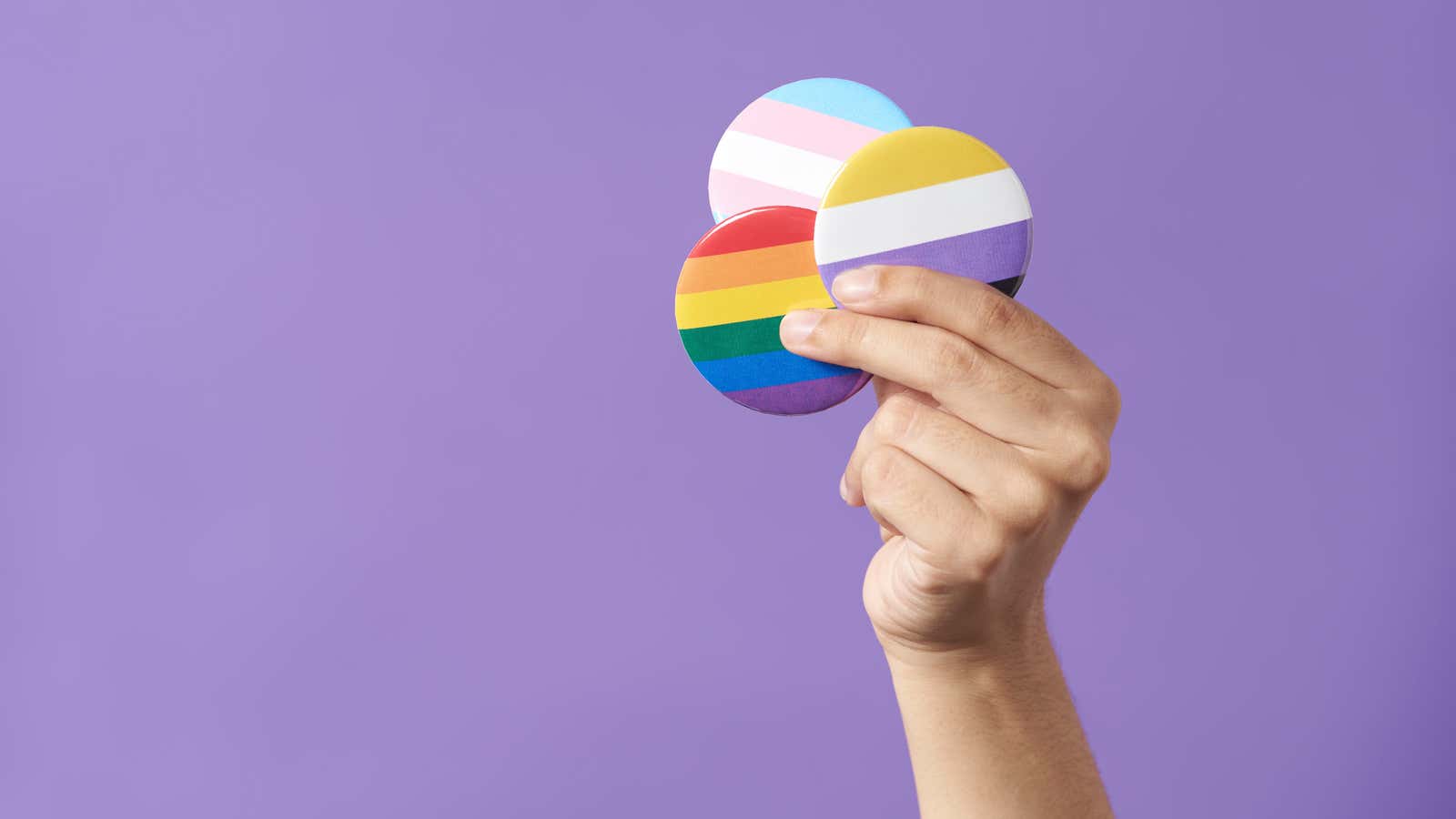For our Q&A we’re joined by Adaline Britt—a recently promoted DEI & accessibility officer for the US Air Force. A senior executive passionate about talent and culture, she is a disabled wartime campaign veteran who also happens to be transgender.
Britt shares her advice and favorite resources for transgender employees and companies.
What was coming out in the Air Force like?
Coming out while in the Air Force was probably a scary as any other organization...there are just so many unknown variables to how you’ll be accepted. I knew that policy and law would protect my right to serve openly after President Biden reversed former President Trump’s transgender ban, but you never really know how your peers will respond. I have to say, my experience thus far has been great. The only flack I’ve taken from Veterans has been online, and typically from those that are in my generation or older.
I see the future of transgender service members shining bright.
How can companies create a trans-inclusive workplace?
The first order of business is to assess and educate your leadership teams, from the boardroom to the mailroom; all persons in leadership should be educated on the basics of diversity, equity, and inclusion (DEI) and healthy culture.
Make DEI and culture as important of a branch in the company as finance and operations; separate DEI from your HR. Bring in a transgender consultant to discuss lived experiences and the positive and negative aspects of being a transgender employee.
What advice do you have for trans employees who haven’t come out yet?
Come out on your time and in the fashion you choose; this should always be a personal choice.
Don’t be afraid to reach out and connect with other trans professionals via social media and/or local LGBTQ centers, or similar; seek advice and recommendations.
I recommend visiting your HR team to discuss any fears, actions or discriminatory warning signs to look for.
What’s been most helpful in your own journey?
Two things: Therapy was essential to my ability to process my transition and still is. Then know that there are others like you. I didn’t even know another trans person when I came out, but quickly met so many more shortly thereafter. Know that there are other trans folx (like me) moving into the ranks of corporate leadership that are here to help and guide.
What resources do you recommend for finding a trans-friendly therapist?
How do you seek out others to create your own community?
- Use social media groups (private or public)
- Local LGBTQ centers
- Your local gayborhood
Are there organizations helping celebrate and publicize trans folx careers?
